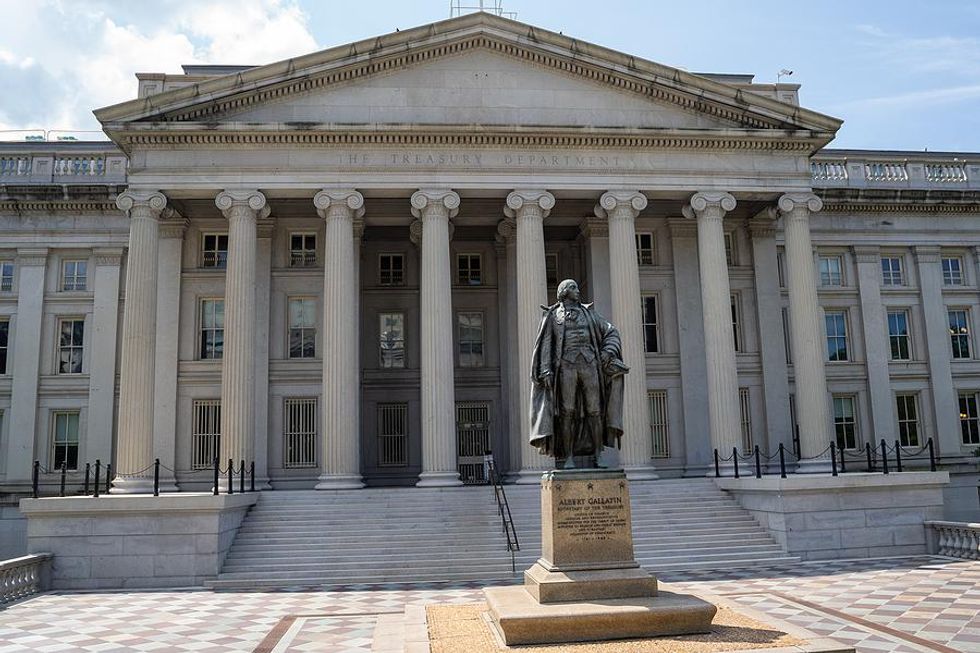
I would never have guessed that my maritime shipping and Naval Intelligence background would become helpful in the financial services realm—yet here we are. Let me explain…
“We’re Bankers, Not SEAL Team Six.”

Bigstock
“We’re bankers, not SEAL Team Six. Are we really expected to start analyzing ship behavior?” This quote from a colleague in a discussion about the idea of Financial Institutions (FIs) monitoring the behavior of ocean-going vessels (ships) motivated me to co-author a white paper on the topic.
Today’s global geopolitical climate is fraught with both nation-states and individual bad actors who use the financial system to conduct their misdeeds. While sanctions can be an effective tool to shut these bad actors out of the financial system, it is far from a panacea. Necessity has become the proverbial mother of invention for bad actors in creating methods to circumvent sanctions and international laws. The typologies range from turning off their safety position reporting to pretending to be a different vessel altogether.
Government Guidance

Bigstock
In May 2020, the U.S. Departments of State and Treasury and the U.S. Coast Guard published “Guidance to Address Illicit Shipping and Sanctions Evasion Practices.” The guidance document provides information targeted for specific stakeholders—one of which is Financial Institutions (FIs). This was a seminal moment. For the first time, FIs were mentioned in government guidance on detecting potentially unusual ocean-going vessel behavior.
Governments recognize the challenge of keeping abreast of the methods of evading laws and impose various regulations on private sector stakeholders to detect and deter nefarious activity. The trend has undoubtedly been government regulators requiring more of Financial Institutions (FIs) compliance measures, not less. U.S. regulators are particularly demanding of FIs in this regard. Whether or not the regulations are reasonable is irrelevant. Once imposed, FIs must find ways to comply.
Why Focus On Transportation?

Bigstock
The sale of commodities is almost invariably accompanied by the need to transport the goods to their destination. It is this transportation element that regulators have recently turned their attention to. This attention is now buoyed by the need to detect the illicit transfer of bulk commodities, such as Russian oil, in the wake of the invasion of Ukraine.
The complexities of trade finance, global supply chains, and the various roles of FIs in a trade transaction can make this a daunting task. This realization motivated me to co-author a white paper on the topic through the Bankers Association for Finance and Trade (BAFT). The paper published by BAFT in early December 2022 is entitled “Perspectives on Evaluating Potentially Unusual Vessel Behavior.” My maritime shipping experience served me exceptionally well in this endeavor.
Understanding The Fundamentals

Bigstock
While banks offering trade finance products likely have a working knowledge of shipping documentation, staff may need to become more familiar with the maritime shipping industry details. This can pose challenges when shipments or transactions are flagged as unusual and compliance issues arise. The paper aims to provide bankers with a rudimentary understanding of maritime shipping and the compliance risk associated with this space. It accomplishes its objective by organizing the material in a methodical fashion meant to be read from beginning to end. The paper begins by familiarizing the reader with basic maritime shipping industry jargon and practices. For example, did you know ships have an identification number that never changes (think of your car’s VIN) even after being sold or renamed? It then lists the most common typologies for vessels evading sanctions, ways to evaluate your FI’s inherent risk, and several considerations when developing appropriate controls for your organization.
My co-authors and I spent hours discussing (which at times pivoted to spirited debate) certain portions of the material. We endeavored to strike the right balance for reasonable measures to evaluate vessel behavior for FIs with varying resources available to Financial Crime Compliance departments. I believe the many hours of Zoom call discussions paid off in the form of a handy white paper for FIs in addressing this evolving risk.
To read “Perspectives on Evaluating Potentially Unusual Vessel Behavior,” please visit BAFT’s Library of Documents under BAFT Guidance and Industry Practice section at www.BAFT.org.

 Bigstock
Bigstock Bigstock
Bigstock Bigstock
Bigstock


